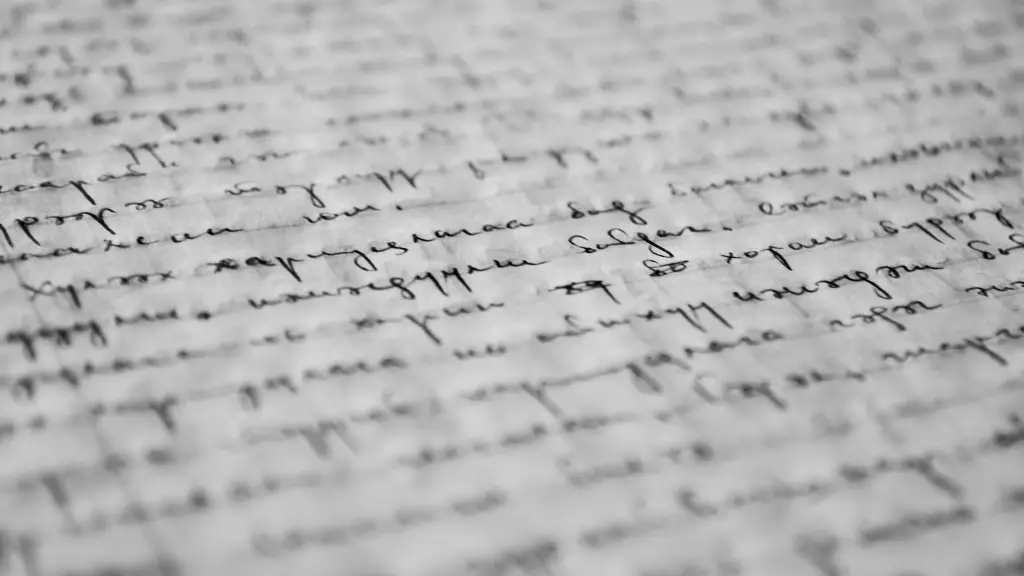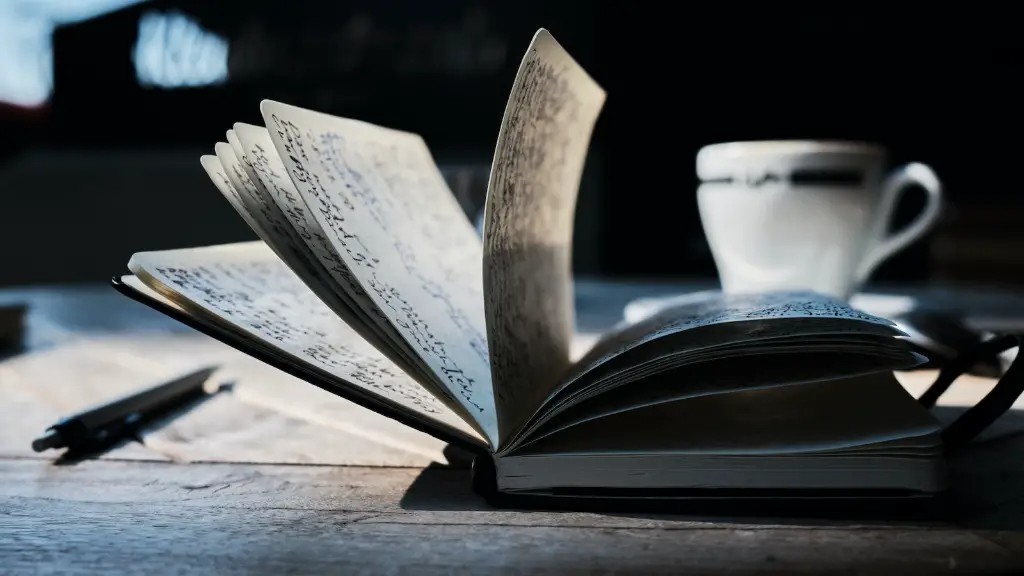What is Poetry?
Poetry is an art form of creative writing that expresses ideas and emotions that are often difficult to express with words alone. It can be both beautiful and powerful and is an art form that has been around for centuries.
At its roots, poetry is language—language that has the potential to express ideas, feelings, and emotions to its readers in a highly condensed form. Poetry is a form of literature, composed of language that evokes emotion with its artful use of rhythm and sound. Poetry draws its power from the way one arranges words, images, and ideas to create an emotional, sensory, and intellectual connection with an audience.
A poem can be as short as a few lines, or as long as a novel, and can explore a range of topics from the mundane to the metaphysical. The writing is often fragmented, emphasizing the imagery and other aspects of the language rather than a natural flow of language.
Poetry can also be used to tell stories and can include figures of speech such as comparison (metaphors) and exaggeration (hyperbole). It often uses imagery and symbolism to convey a message or experarience. This helps draw the reader into the world of the poem and creates a powerful connection between the writer and the reader.
In addition to its use in literature, poetry has been used in music, film, theatre, and other forms of art. Poets throughout the centuries have used their craft to express their ideas, feelings, and emotions in a creative way.
When writing a poem, the author is able to explore language in a way that just isn’t possible in other forms of writing, allowing them to communicate even the most complex of ideas in a beautiful and powerful way. This, in turn, gives the reader an opportunity to experience a new perspective and creates a deeper level of understanding.
In essence, poetry is more than words on a page; it is an art form that speaks to the soul and can touch the heart of its readers. Through the beauty and power of poetry, we can experience the world in a way that we never thought possible.
Forms of Poetry
Poetry can take many forms, including traditional forms like sonnets, haikus and villanelles, as well as more modern forms such as free verse. Traditional form poems often require a specific meter, or syllabic pattern, and exhibit a structure that follows a preset rhyme scheme.
In free verse poetry, the poet has greater freedom to express themselves, as there are no prescribed rules with regards to meter or rhyme. Free verse poems are composed of sentences and lines that need not follow a strict meter or rhyme structure. However, different poetic effects can still be achieved by playing with language and the structure of the poem.
Other forms of poetry include prose poems, which are often characterized by their lack of line breaks, and odes, which are a type of poem that pays tribute to a particular person, object, or event.
No matter the form, all poems seek to capture meaningful moments, experiences, and ideas in an expressive way. The beauty of a poem lies in its ability to evoke feelings and emotions and create an intimate connection with the reader.
Why is Poetry important?
Poetry is important because it helps people express themselves in powerful and meaningful ways. By presenting ideas and emotions through language, poetry gives its readers a unique insight into the human experience. By expressing ideas and emotions in a condensed, evocative form, poets can speak to the heart, mind, and soul of those who may not have previously had access to those sentiments.
Poetry can have a profound effect on its readers, inspiring them to think and reflect on their lives in a way that other forms of writing cannot. Writing poetry can also help people to better understand and process their own emotions, experiences, and perspectives.
In addition to its healing qualities, poetry can also be used as a means of protest and activism. By voicing their frustrations and opinions in a condensed and emotionally powerful form, poets can speak powerfully and ignite change in their societies.
Ultimately, poetry is an important art form because it allows people to speak their truth, share their ideas and experiences, and make powerful statements that inspire meaningful conversations and positive action in society.
How to write Poetry?
Writing poetry involves exploring language, emotion, and structure. While there is no “right” way to write a poem, there are some tips and tricks that can help you get started. First, it’s important to have some kind of idea or theme that you want to write about.
Once you have an idea, consider the ways that you can evoke emotion and create an impactful poem by playing off of images. This can be done by using language that speaks to the senses and is evocative. The use of narrative structure, metaphor, and other figures of speech can help you to create an impactful poem.
It’s also important to consider the structure of the poem when writing, as this can influence the way in which the poem’s message is conveyed. Consider the way the words are arranged, how the poem is organized, how long each line is, how the stanzas are formed, etc.
When writing a poem, it’s also important to give yourself the freedom to experiment and explore language and structure. Don’t be afraid to write your ideas down, regardless of how they may sound. A poem can take shape in many different ways and can be changed and edited until you feel it conveys your message effectively.
The Power of Poetry
Poetry is a powerful form of self-expression and communication, and has been used throughout the centuries to evoke emotion and inspire change. Its beauty lies in the way it conveys ideas, feelings, and emotions in a concise, evocative manner. Whether for healing, protest, or simply to express emotion, poetry is an important form of art and an important part of the human experience.
The power of poetry lies in its ability to make us feel something, no matter how big or small. Whether it’s joy, sorrow, hope, or despair, poetry can speak to us and help us connect with our feelings in a powerful way. It can make us feel seen and understood, and can give us the courage to face our fears and tackle life’s challenges.
The power of poetry also lies in its potential to ignite change. Poets can use their words to protest social injustices and voice their concerns in a way that can inspire meaningful conversations and positive action. The beauty and power of poetry can be used to make a change.
The Role of Poetry in the Modern World
Poetry has an important role to play in the modern world. By expressing emotions and experiences in a concise and evocative form, poets can help readers to connect emotionally with what is being said. Through their words, poets can inspire others to think more deeply, to see the world in a new way, and to learn to appreciate the small moments in life.
In today’s world, poetry has the potential to be a powerful platform for change. With its beautiful, evocative language, poetry can be used to speak truth to power and challenge rigid mindsets. Poetry can also be used to bring people together, to inspire and motivate, and to help us find solace and comfort in difficult times.
Ultimately, poetry has an important role to play in our lives. By helping us to understand and experience the world in a more meaningful way, poetry can be a powerful force for good in the world.
The Impact of Poetry on Society
Poetry has had a strong and lasting impact on our society. Throughout the centuries, poets have used their craft to articulate their ideas, feelings, and emotions and to make powerful statements with their words. Poetry has also been used to protest social injustices and to spark meaningful conversations and positive change.
Poetry is also an important part of our cultural heritage. By exploring different cultures’ stories, their myths, and their oral and written traditions, we gain a deeper understanding of the human experience, allowing us to build stronger connections with each other.
Poetry has the potential to make an impact in our society in many ways. By providing a platform for people to express themselves, by playing a role in our cultural heritage, and by inspiring meaningful conversations and positive change, poetry has and will continue to have a lasting impact on our society.





